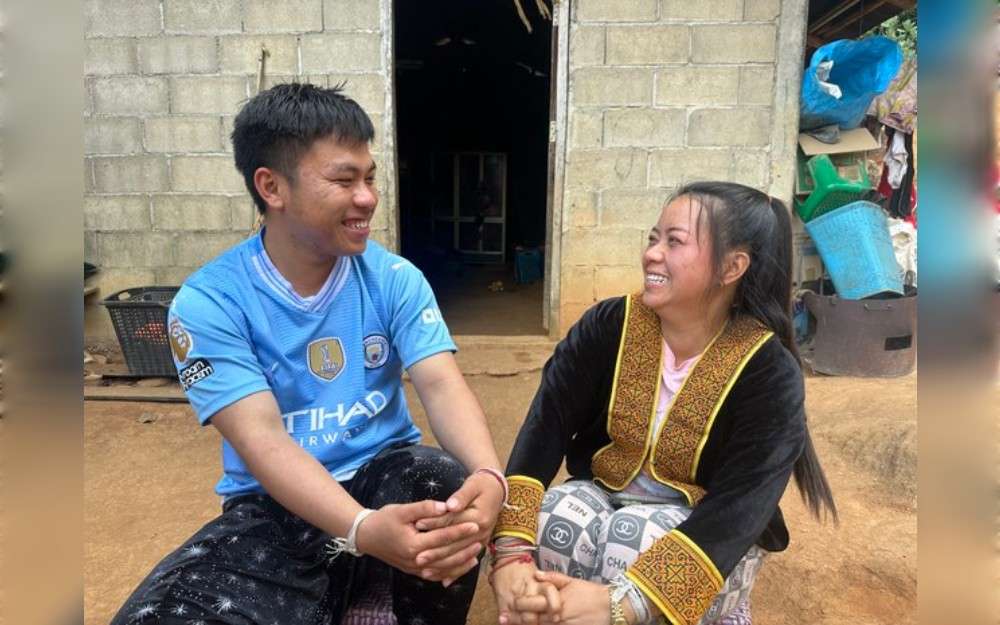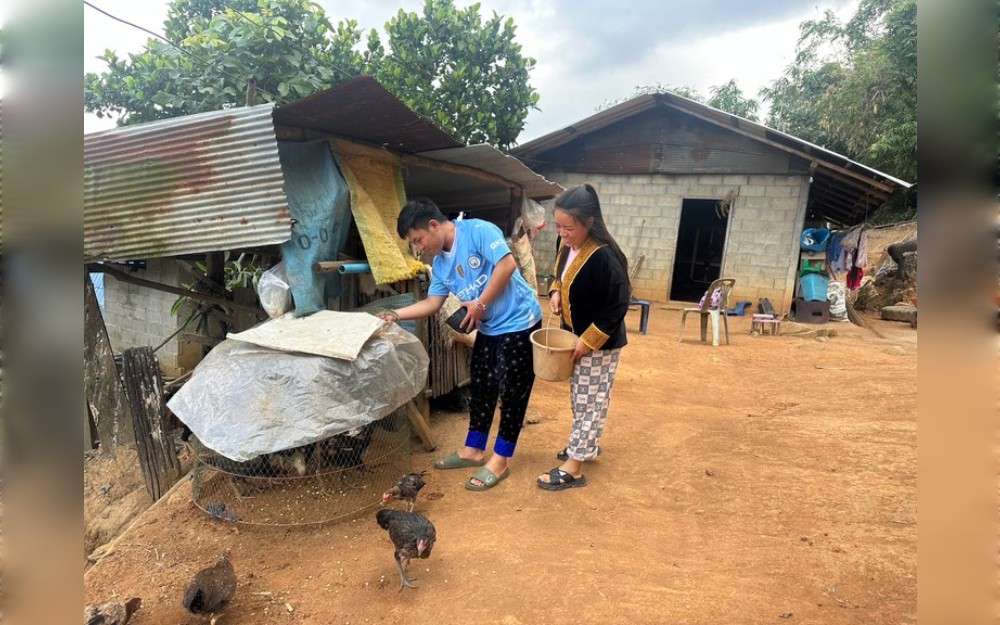Wilawan Watcharasakwej/Chiang Rai,Thailand

As the sound of gunfire and explosions grew closer, Thai farm laborer Gong Saelao took refuge in his bedroom at a camp in southern Israel on Oct. 7 last year.
Not long after, he recalled, he was detained by a group of gun-wielding men who blindfolded him, chained his wrists and ankles, and dragged him into the Gaza Strip.
So began nearly two months in captivity in which he suffered physical and mental abuse but was also treated to acts of kindness by his captors from the Hamas militant group, he said.
“I was so scared because I didn’t know what they were thinking,” said Gong, who was freed on Nov. 29. “I thought I wouldn’t return home alive.”
Last weekend marked six months since the Hamas attack that left 1,200 Israelis dead and triggered a retaliatory assault on Gaza that Palestinian authorities say has killed more than 33,000 people.
Gong was one of 23 Thai hostages released from Gaza after the Hamas raid, with eight still held captive. Nearly 30,000 Thais were working in Israel before the onset of war, most of whom were farm laborers from the country’s poor northeastern regions.
Gong, a member of the Hmong ethnic group, recently recounted his ordeal to BenarNews from the dirt-floor home he shares with his wife Suntree in northern Chiang Rai province.
“I was in my room when they came to search it and detained me,” he said. “Five Thais who were outside were detained before me and taken to another location.”
Before his abduction, Gong had been live-streaming on Facebook the explosions and rockets flying through the sky. But when his wife tried to call him later that day, he didn’t pick up – and she immediately thought the worst.
In the days that followed she posted messages to social media groups used by Thai laborers in Israel. “But no one had seen him,” Suntree, 28, said with tears in her eyes.
Keeping the faith
By that time, Gong was being held at a hidden site deep inside Gaza amid increasingly severe Israeli bombardments of the narrow coastal strip.
At first, his captors were aloof, he said, but they slowly became more friendly.
He was fed food like chicken biryani, salads and bread – sometimes with butter or cheese – and was given medicine when he fell ill. The militants protected him during heavy bombardments, he said.
“I had hope that I might return home alive,” he told BenarNews.
But weeks of confinement as a war raged on outside took a toll. Shackled, under constant guard and isolated from his compatriots, he said he suffered from migraines and stress.
“They kept telling me not to worry, that I would definitely go home tomorrow,” Gong said. “They said Thailand is good, they don’t hurt Thai people.”
Eventually, his captors followed through on their word. After a “farewell meal,” he was blindfolded and handed over to another group that took him to a designated drop-off point.
When his blindfold was removed, he recalled a sense of joy sweeping over him as he looked at paramedics and a United Nations vehicle waiting for him.
“It was like I was lifted up from a black hole of death and reborn,” he said with a laugh.

Later, at the Shamir Medical Center in Tel Aviv, where he was taken for a check-up, he was finally able to video call with his wife.
“I can’t remember our conversation but there was a lot of emotion,” Suntree said. “He cried and I also cried … I told him how much I missed him.”
Homecoming
On Dec. 4, Gong and five other former hostages arrived back in Thailand.
Some 15,000 Thais workers have been helped home since the conflict began, but around 60% say they intend to return once the situation calms down, according to the Thai labor ministry.
For now, Gong is happy to seek employment in Thailand provided he can earn enough. Originally, he had intended to work in Israel for a few years to pay off debt, build a house and provide a comfortable life for Suntree.
But his experience has led him to reassess his priorities and plans. Today, he spends his mornings helping Suntree feed their chickens and works in local corn fields.
Although he has not ruled out working abroad again, Israel is off the cards.
“I was lucky last time, but I may not be so lucky the next,” Gong said.
Copyright ©2015-2024, BenarNews. Used with the permission of BenarNews.














